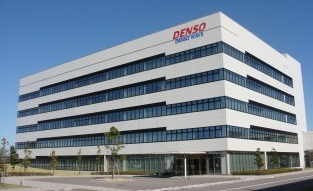DENSO Leads $65 Million Series C Funding for Autonomous Cars
DENSO Corporation, a $48.1 billion company and one of the world’s largest automotive suppliers of technology and components, announced its investment in ThinCI Inc., an AI hardware startup developing computing platforms.
ThinCI’s programmable computing architecture can accelerate deep learning, AI and other algorithms relevant to the automotive industry and will provide somewhere around 5 to 10 times the computing power and performance offered by the next best solution.
The close of ThinCI’s $65 million series C funding round was led by DENSO and Temasek. Other investors include GGV Capital, Mirai Creation Fund – backed by Toyota and other limited partners – and Daimler. DENSO was the lead investor in ThinCI’s last funding round in 2016.
“ThinCI has the capabilities to help us usher in the next era of transportation. The company’s technology provides the computing power to make autonomous driving and advanced electric vehicles the industry norm,” said Tony Cannestra, DENSO’s Director of Corporate Ventures. “The move to Level 4 and Level 5 autonomy in the automotive industry will require huge amounts of flexible computing power. It’s not feasible for car owners to have autonomous vehicles with server racks in their trunks, so there is a definite need to get that computing power out of the trunk and into a set of chips.”
Here’s what’s at play: As automotive electronics become increasingly sophisticated, the number of semiconductor devices used in vehicles has increased significantly. When automated driving and electrified power sources become the norm, high-performance, yet low-power semiconductor devices will be required for self-driving cars to operate effectively. These vehicles will need to constantly monitor their surroundings, rapidly process enormous amounts of information and make split-second driving decisions – all of which are made possible by semiconductors being able to properly sense road environments and communicate with one another.
In a bid to achieve practical use of semiconductor devices necessary for automated driving technologies, DENSO established NSITEXE in 2017 to design and develop a next-generation, high-performance semiconductor devices to advance autonomous driving solutions. One of NSITEXE’s current focuses is its Data Flow Processor, or DFP, which is a brand-new type of processor that enhances the functionality of central processing units (CPUs) and graphic processing units (GPUs),meaning they can rapidly perform multiple complex calculations at once. Moreover, a DFP is capable of instantaneously optimizing its calculating areas according to the amount and content of information, which reduces its power consumption and heat generation. Since 2016, DENSO and ThinCI have worked together to commercialize the DFP and enhance its development.
“Our Data Flow Processors allow autonomous vehicles to make quick-fire decisions out of complicated and fast-evolving data sets,” said Yukihide Niimi, president and CEO, NSITEXE. “This takes highly targeted computing and processing power, which is why adding ThinCI’s deep learning and vision processing capabilities help ensure our DFPs operate effectively and efficiently.”
Category: General Update, News










